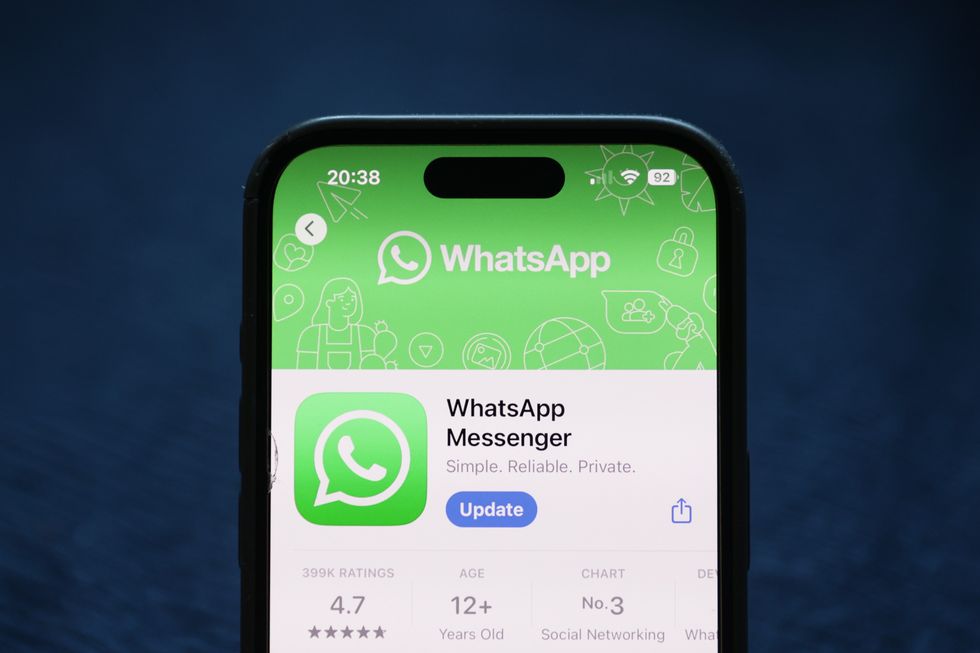Hackers are after your WhatsApp with terrifying new scam – You must take these 3 steps to block them
Fraudsters are pretending to be your family members and friends
- There's a new WhatsApp scam on the rise, according to Action Fraud
- Hackers are impersonating friends and family to steal money
- Hundreds of thousands of pounds is estimated to have been stolen
- You can secure your account in three easy steps
Don't Miss
Most Read
Latest
WhatsApp users have been placed on red alert: there's a new scam on the rise.
According to Action Fraud, there's been a spike in reports of WhatsApp accounts being compromised. Cyber crooks are reportedly logging into accounts and attempting to scam the friends and family in your contact list.
They've developed several ways to bypass the two-factor authentication required to access a WhatsApp account, which means someone needs more than the standard SMS verification.
You'll need a six-digit PIN when you register your number with WhatsApp, and optionally, an email address for account recovery. This prevents unauthorised access to your account, even if someone gains access to your phone number.
For instance, the fraud usually begins with a WhatsApp audio call from someone pretending to be a member of your close friends or family. The scammers use a fake profile picture and name to try to convince them to accept.
⚠️ **Protect your WhatsApp account against hackers.** We continue to see a rise in the number of reports relating to WhatsApp account takeovers. Here’s what you need to do to protect your account:
— Action Fraud (@actionfrauduk) July 30, 2025
✅ **Set up two-step verification** to give an extra layer of protection to your… pic.twitter.com/25IchOqm62
During the call, the scammer claims they were setting up a video call for the group and they'll need to send a one-time passcode and ask the victim to share it with them so they can be “registered” for the call.
But in reality, that passcode is a security code to access the WhatsApp account. Once it's shared, the scammer uses it to login to another device and take over the account.
After gaining control, the scammer activates two-step verification, locking the victim out. Then, they message the victim’s contacts, pretending to be in urgent need, and ask for money.
The scam appears to be pretty successful, too. It's estimated that hundreds of thousands of pounds have already been given to these fraudsters, while users think they're helping out their loved ones in an emergency.
In a bid to block these types of attacks, Action Fraud has issued some critical advice with 3 clear rules to safeguard your account and ensure you don't become the next victim.
On X, formerly Twitter, it posted: "Protect your WhatsApp account against hackers. We continue to see a rise in the number of reports relating to WhatsApp account takeovers."
First, set up two-step verification, which creates an added layer of account protection.
You can complete this in the following steps:
- Open WhatsApp and select Settings from the menu. On iPhone, tap the Settings icon in the bottom-right corner. On Android, tap the three-dots in the top-right corner, then select Settings.
- Select Account
- Select two-step verification from the list
- Tap Enable
- Create a six-digit PIN you'll remember. Remember — you'll need this PIN if you ever reinstall WhatsApp or set it up on a new phone
- You can also add your email address in case you forget your PIN or want to reset it

WhatsApp is used by more than two billion users worldwide, making it a popular target for scammers looking to gain access to personal information
| GETTY IMAGESNext, it's vital to never share an account's activation code. This is a special code that lets you unlock and start using the full version of the app. Sharing this code can also help a fraudster gain full access to your account.
LATEST DEVELOPMENTS
- Netflix will be blocked on some Fire TV Sticks tomorrow
- Sky unleashes 'lowest prices' on broadband and TV
- Blockbuster upgrade coming to Samsung Galaxy, but only if your phone is on THIS list
- Best VPN deals
Finally, stop and think if a family member or friend is really the one on the side of the screen making an out-of-the-blue request. By performing a callback and verifying it's really them making the request, you can ensure you're information is staying secure every time.
These steps can be taken on other platforms, not just WhatsApp. Apps like Facebook, Instagram, X, Snapchat, etc, all have experienced hackers looking for ways to access accounts for harmful purposes.
More From GB News










